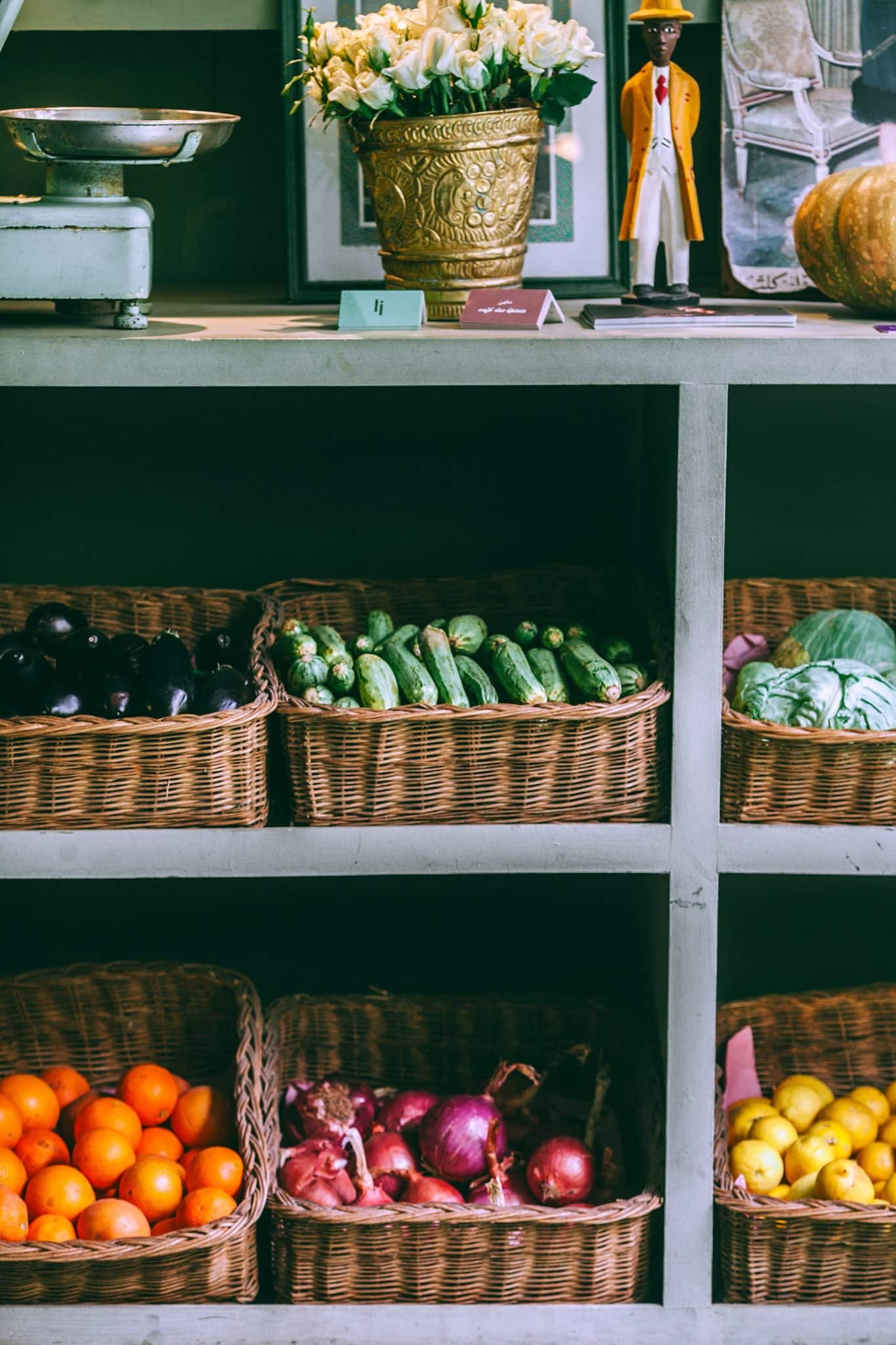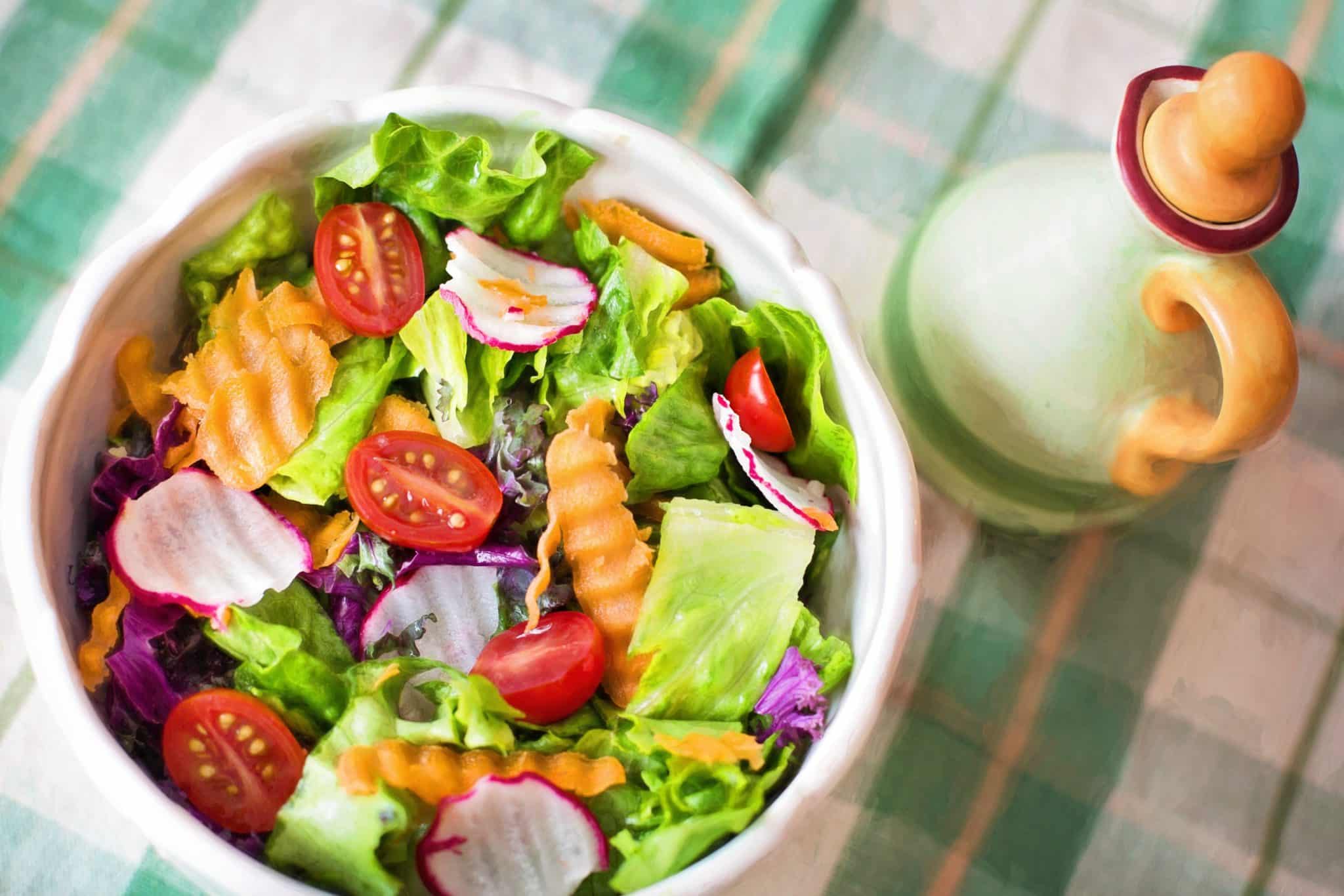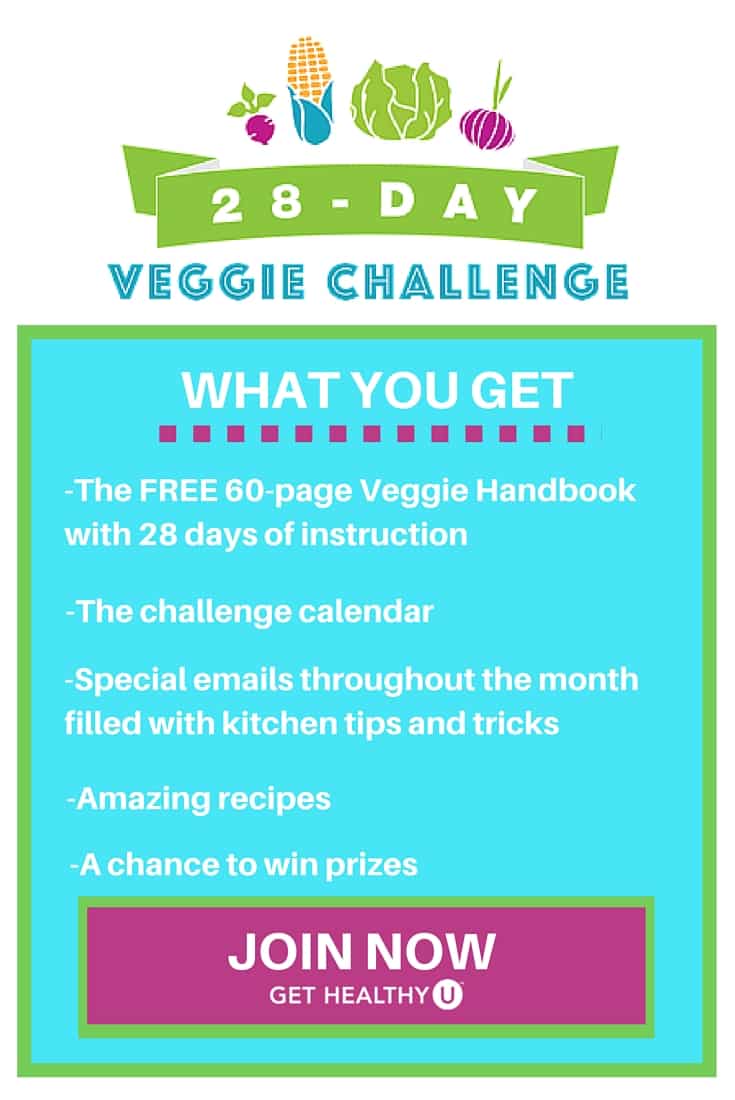This post contains affiliate links. Please see our disclosure policy.
How to eat more vegetables? We have something that will make it easier than boring green beans and tasteless broccoli! Let’s be real, you know you’re supposed to eat your vegetables, but do you? The USDA recommends 2-3 cups of vegetables per day and yet 87 percent of Americans are not reaching this amount. WHOA! In this post, you’re invited to our 28-Day Veggie Challenge to get you in check and up that veggie intake in a fun way!
But we know that choosing vegetables isn’t always the easiest choice.
Believe us, we’ve been in your shoes; you make the smart decision to order vegetables as your side at a restaurant and what comes out is a pile of under-seasoned broccoli and cauliflower mush. Right then and there, you decide you hate vegetables.
We want to show you that veggies can taste amazing!

Save This Article To Read Later
Why You Should Eat More Vegetables

The reasons go on and on! It’s probably not a surprise to you that vegetables are full of nutrients, phytonutrients, antioxidants, and key vitamins and minerals. They are also known to:
- Reduce blood pressure
- Provide nutrition to support your overall health and maintenance of your body
- Flush out toxins from your body
- Aid in Weight loss due to their low fat, high fiber content
- Lower your risk of diabetes
- Prevent bone problems
- Improve immune function
- Protect the stomach and digestive Tract from diseases like cancer
- Improve eye health
- Support healthy skin, hair, and nails
- Add color and variety to your meals
- And more!
Essentially, vegetables are one of the BEST things that you can eat in this world. And hey, don’t be shy if you need to buy frozen vegetables at the grocery store due to cost or availability.
Frozen vegetables can be just as nutritious as fresh and often easier to use in healthy recipes.
Related: 7 Easy Spiralized Recipes For Beginners
How The Veggie Challenge Works
With a little time and effort, you can learn your favorite ways to eat vegetables; it just takes a little commitment!
This is why we’re asking you to take this one month and choose to experiment with a different vegetable every day.
We have loads of recipes on our site with all of the vegetables we include on the downloadable calendar so all you need to do is type your veggie into the search bar and pick your recipe!
Plus, you’re getting a 58-page Veggie Handbook PACKED with info.

Included In Your Veggie Challenge Guide
- 28 Different Veggies—each with its own nutrition profile and list of benefits
- 3 ways to prepare each veggie with delicious recipes
- How to pick, prepare, cut, and wash different veggies, the easy way
- Tips on how to keep your produce fresh
- How to make vegetables taste good (really!)
- What can you add to vegetables for flavor
- Tips to make the best-roasted vegetables
- Healthiest ways to cook vegetables
Using the Vegetable Recipe Book and Calendar
Did we mention this is a 58-page guide?! In our recipe guide, you will get all the info you’ll ever need to make getting your daily veggies second nature and truly delicious.
Make friends with veggies and change the way you eat and the way you feel!
All you have to do is click the below image and download our 28-day veggie calendar featuring a different vegetable for every day!
Feel free to follow along exactly with the calendar or switch things up and choose a different vegetable based on what’s available or your preference; the point is just to eat and learn about a different vegetable each day!
And just wait, you’ll be sure to get compliments in the grocery checkout line when people see just how many veggies you are walking out of the store with!
Click below to sign up for our FREE 28-Day Veggie Challenge and join thousands of others to challenge yourself and your family to eat more veggies!
Join in on the fun and get started on a healthier diet NOW!

Things To Expect When You Eat More Vegetables
Alright, a little real talk. If you’re not used to eating vegetables in larger quantities or on a regular basis, your body may have a few side effects you’re not used to:
- If you’re eating raw cruciferous veggies (such as broccoli, cabbage, Brussels sprouts, or bok choy), you may notice some increased gas.
- The best way to avoid this is to start with a small amount or to cook the vegetable.
- Asparagus has a tendency to make your urine smell a little off. It’s normal and will pass within 24 hours.
- If you’ve ever worked with beets, you know they can stain your fingers or other surfaces you may be working on. Well, the same can happen with your bowels, so don’t be alarmed if you see a little red/purple!
Can’t wait to hear about how all of you are including more vegetables into your diet!

READ THIS NEXT
The 28-Day Reboot Your Body Challenge



I’m in
I guess the problem is solved; because it worked. Thank you
I’ve never had my bowel movement turn a funny colour from beets, but my urine goes pink.